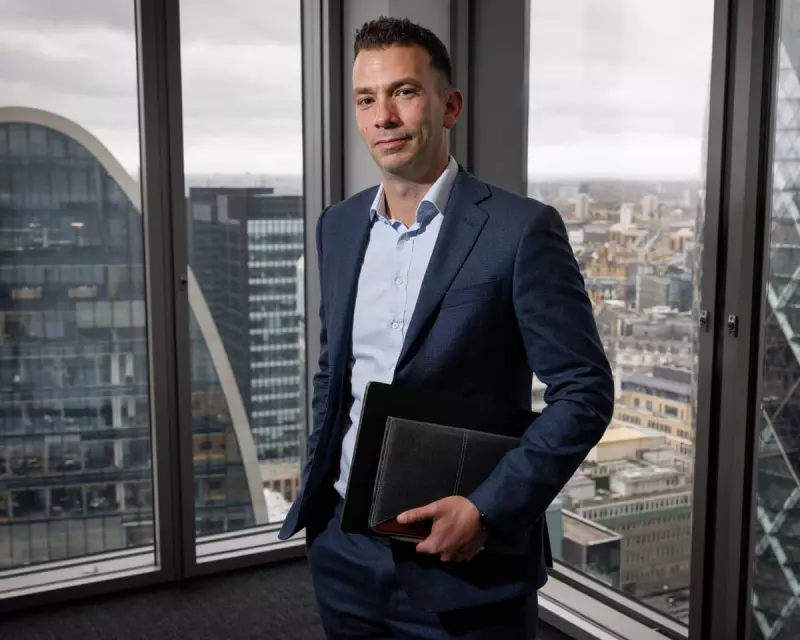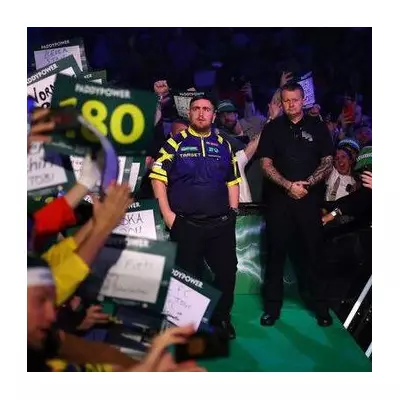
Simon Leaf's career path took an unexpected turn when a knee injury shattered his dreams of becoming a professional football referee. Today, as a leading sports lawyer, he navigates the complex intersection of law, sport, and technology, handling everything from billion-pound transfers to life-altering medical diagnoses for elite athletes.
When Football Becomes a Matter of Life and Death
One of Leaf's most profound professional experiences occurred in a doctor's office, sitting beside a footballer receiving devastating health news. The player, who had sensed something was wrong, underwent tests shortly after Fabrice Muamba's cardiac arrest at White Hart Lane - an event that heightened awareness about heart conditions in football.
The consultant confirmed the player had hypertrophic cardiomyopathy, the same condition that nearly claimed Muamba's life, where thickened heart muscles struggle to pump blood effectively.
"To get the results with him, to talk him through his options, to try to guide him through that process was a truly humbling experience," Leaf recalls. "This wasn't about money, this was a life at stake."
His role extended beyond legal advice to helping the player navigate whether to continue his career, what support systems clubs and national teams should provide, and ensuring all safety protocols were followed to preserve the athlete's wellbeing as much as possible.
The Evolving Landscape of Sports Law
When Leaf began his career, sports law barely existed as a specialised field. Now, particularly in football, legal disputes have become integral to the game's drama between matches.
The field has become so embedded in football culture that Manchester City fans famously displayed a "Pannick on the streets of London" banner supporting Lord Pannick, the lawyer defending their club against the Premier League's 130-plus charges. Supporters even request selfies with prominent football lawyers like Nick De Marco.
Leaf describes the reality of the job involving all-night negotiations. "That may be trying to get a deal done in a large boardroom but often it's not as glamorous as that. Typically, it's late-night Zoom calls, passing drafts between lawyers. It can get heated from time to time."
While he's worked on deals worth over £1 billion, Leaf emphasises that sports law isn't exclusively about mega-money transactions.
Protecting the Vulnerable in Football
Leaf dedicates significant time to pro bono work, particularly advising teenage academy players and their families. League rules permit clubs to offer pre-scholarship contracts to children as young as 13, who cannot be represented by agents at that age.
"There are a lot of good people in sport, but there are a lot of sharks looking to take advantage of families who often aren't experienced as to how the industry works," Leaf explains. "At that stage, the clubs hold all the power."
He describes situations where clubs pressure parents and young players to sign documents committing them to the club for three to four years without proper legal advice.
His previous firm established a helpline for women in football experiencing discrimination, which received weekly calls for help from individuals across the football world, from boardrooms to boot rooms.
From Cambridge Referee to Tech-Focused Lawyer
Leaf's journey into law happened "by accident." While studying business management at the University of Cambridge, he was a promising referee alongside contemporaries like Michael Oliver.
"Most people were out partying every night and I was getting ready for Eastbourne away," he recalls.
Sponsorship from BLP for a law conversion course allowed him to continue refereeing until a knee injury ended that career path, paving the way for his sports law practice.
As a trainee, he worked on diverse projects including real estate for the Football Association's St George's Park development, intellectual property for London 2012, and early "receivables financing" deals for football clubs. This financing method, where lenders provide clubs with upfront money against future transfer fee instalments, has become fundamental to how many deals are structured.
After serving as head of sport at Mishcon de Reya, Leaf recently established Three Points Law with Tom Murray, focusing on the intersection of sport and technology.
"Almost every deal we do now has a tech or intellectual property or data angle to it," he notes. "Be it a player transfer or the big sponsorship and broadcasting deals."
His client roster includes Marcus Rashford and technology companies supporting video assistant referees. His work involves not just preparing bids and negotiating contracts but analysing legal risks, such as determining liability when technology fails - exemplified by Hawk-Eye's failure to award Sheffield United a goal against Aston Villa in 2020, an error that potentially kept Villa in the Premier League.
Players are increasingly leveraging data in contract negotiations, with athletes actively looking at monetising their own data. Leaf's firm advises sports organisations on commercialising live athlete data, including whether heart-rate information could be shared with spectators to demonstrate the intense pressure professional athletes endure.
The world of sports law continues to evolve, blending traditional legal practice with cutting-edge technology and maintaining the human element that initially drew Leaf to the field - protecting athletes' careers, health, and livelihoods in an increasingly complex sporting landscape.




